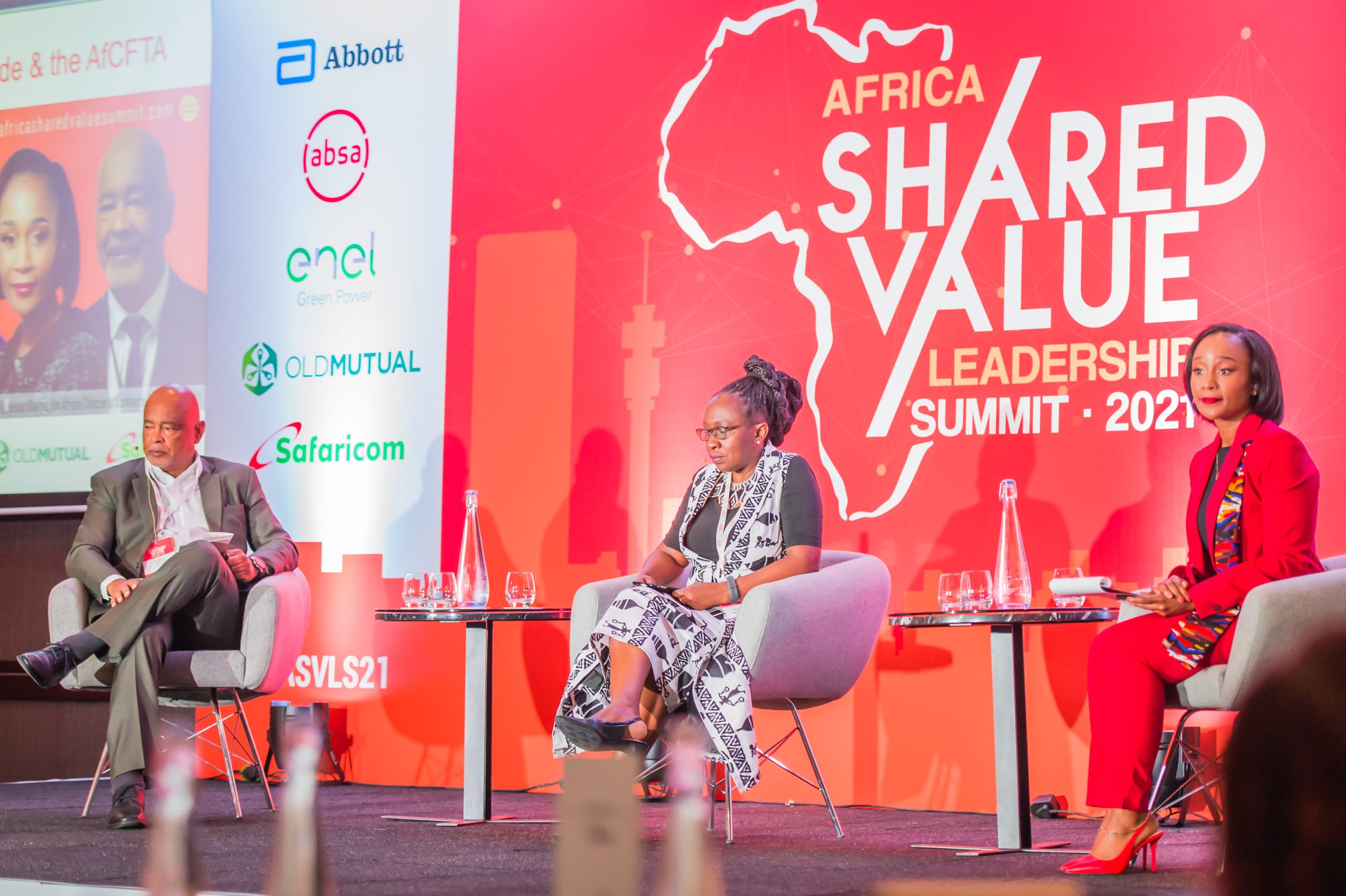Education is key to unlocking the AfCFTA’s potential
Infrastructure challenges remain, but a far more pressing and immediate need is for information sharing, education about the free trade area and fostering a better understanding of what the AfCFTA means for business at the local level.

It is common knowledge that the advent of COVID-19 coincided with the launch of the African Continental Free Trade Area (AfCFTA) as the key vehicle to foster economic integration across the continent, by deepening African countries’ integration into regional and global value chains. Although the pandemic interrupted the pace of the initiative, it remains a veritable tool for fast-tracking the process of economic recovery, given its enormous potential for income and employment creation and, by extension, also poverty reduction.
During the 2021 Africa Shared Value Leadership Summit, to take stock of progress and explore the potential of AfCFTA as an economic game changer, the SVAI hosted a fireside chat with Dr. Towela Nyirenda-Jere, Head of Economic Integration Division at the African Union Development Agency (AUDA-NEPAD) and Kebour Ghenna, Executive Director of PACCI (Pan African Chamber of Commerce and Industry). The discussion was facilitated by Fifi Peters, Financial Journalist at CNBC Africa.
Dr. Nyirenda-Jere highlighted key initiatives spearheaded by the AfCFTA Secretariat to drive the trade agenda forward including resolution of issues relating to non-tariff barriers, establishment of the trade observatory to help connect entrepreneurs and Micro Small and Medium Enterprises (MSMEs) to trade information and guide them in bringing products to market, as well as an online monitoring tool, which allows people to report on challenges they are facing with cross-border trade. Furthermore, Afreximbank, in collaboration with the AfCFTA Secretariat, has launched a payment settlement system that’s also meant to support the settlement of payments for cross-border e-commerce and address the constraints faced by MSMEs.
As for AUDA-NEPAD’s contribution, there is the 100,000 MSMEs Initiative, which addresses challenges relating to capacity development, access to finance and opportunities through access to markets and trade, as well as procurement opportunities. There is also a homegrown solutions business accelerator programme, which aims to cultivate a culture of innovation and responsiveness in terms of African solutions to African problems.
For its part, PACCI elevates the voice of the business at a continental level to entities like the heads of state and the African Union or any other forums where trade is the main focus. As a continental business network, the PACCI also brings to the attention of policymakers what businesses and MSMEs are seeking, what they are finding challenging and the opportunities that need to be supported and maximised, according to Mr Ghenna.
On the subject of key challenges holding back progress, Dr. Nyirenda-Jere identified infrastructure constrains and associated disparities, be it connectivity in terms of transport or communications, as some of the biggest challenges insofar as regional economic integration is concerned, but added that considerable work is underway to address this.
She underscored the fact that, in addition to continental-level programmes, there are also infrastructure development programmes at the African Union level, focusing on cross-border infrastructure. All of these are long-term projects (2021 to 2030) with a combined capex of about US$160 billion.
Dr. Nyirenda-Jere noted that private sector funds will have to be allocated these projects, in order to bring them to bankability and make them work for Africa’s people. This, however, will require all the supporting governments to demystify any associated risk perceptions and work with the relevant financial institutions to put the required guarantee mechanisms in place to de-risk cross-border infrastructure projects. “We need to work together to create more favourable conditions, which will be conducive to the private sector investing in these infrastructure projects.”
Dr. Nyirenda-Jere also emphasised that attention must be directed towards the multitude of last-mile issues at the borders, ranging from infrastructure and connectivity to access to services. This requires countries to address localised infrastructure across the borders and the necessary connection between both regional and national infrastructure.
Other challenges pertain to productive capacity and connecting the way production happens to where markets exist. In other words, creating regional and continental value chains to stimulate productive capacity and then leveraging this capacity ten-fold. The latter, however, will require a paradigm shift to reduce Africa’s over-dependency on imports in favour of domestic production of basic consumer goods.
Dr. Nyirenda-Jere made a valid point that aside from big business, consideration and priority attention must be afforded to MSMEs and informal traders, people who need the capacity building and nurturing for them to be able to take advantage of the opportunities presented by the AfCFTA.
Mr. Ghenna agreed, noting that apart from financing, considerable education and coaching of small and medium enterprises must still be done to convert them to the side of the AfCFTA. He added that it is the responsibility of business chambers, national business and sector associations to help improve the capacity of businesses to market and bring product to market.
“From a business perspective, we are far away in terms of even understanding what the AfCFTA is all about and where the benefit lies at this stage. While the issue of tariff reduction remains omnipresent, business people are also faced with basic on the ground challenges in terms of the movement of people, working hours and harmonisation of rules. ”
He also identified the dire need for business to be represented at the continental trade table. “Because of the absence of discussion, decisions have been taken in the past, which in a way has had a negative impact on businesses. We need to bring business and government much closer to discuss and come together on important issues that affect not only businesses and local economies, but the entire continent.”
Dr. Nyirenda-Jere added: “Right now it’s more about getting people to understand what the AfCFTA is about and what it means for them at the local level; why should they care and how they can get involved? Without that understanding and without that buy in, it becomes very difficult to sell the idea and to make things work.”
In closing, the fireside chat underscored the need for governments to go the extra mile and foster a better understanding of regional imperatives like the AfCFTA, as well as integrating those with the national imperatives and development priorities of each country. Similarly, business needs to play an active role in finding resolutions to issues on the ground and do its part in developing the productive capacity of domestic industries. For Africa, the short term and long term benefits of these efforts will be multi-dimensional: value chain development, forward and backward integration, job creation, and inclusive industrialisation.





